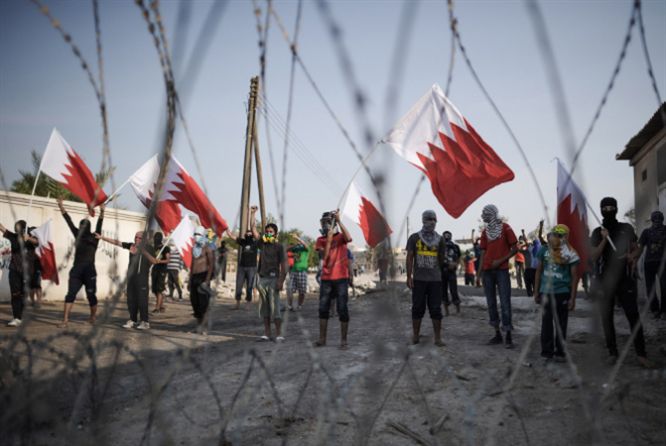Salam For Democracy and Human Rights declares the Bahraini Ministry of Labor and Social Development action to exclude dozens of applicants for the management of charities and civil society associations an infringement on local and international laws relating to civil and political rights established in the International Covenant on Civil and Political Rights. We also consider it an abuse of local laws that governs charitable work and the activity of civil society organizations, as well as an attempt to restrict civil rights and strip associations of their independence.
In November 2021, the Ministry of Labor and Social Development initially rejected the candidacy of 14 out of 16 members who applied for the 2022-2023 Sarr Charity Fund election. On the 2nd of December, the Sarr Charity Fund received a letter from the Ministry of Labor and Social Development, stating that four other candidates had been approved, bringing the total number of people accepted to stand for election to 6 out of 16 candidates. Meanwhile, the Ministry of Labor and Social Development rejected a request to nominate 30 of the 34 people in three batches. Moreover, in January 2020, two members of the Board of Directors of the Bahrain Women’s Union were excluded by the Ministry of Labor and Social Development because of their previous political associations.
Salam for Democracy and Human Rights recommends that the Government of Bahrain lift all such restrictions, amend all laws restricting charitable and civil work, and repeal Law No. 36 of 2018 by amending Article 43 of the Law on Associations, Social and Cultural Clubs, special bodies working in the field of youth, sports and private institutions issued by Decree No. 21 of 1989, which stipulates that members of the Board of Directors should enjoy their civil and political rights. Also, the Ministry should not violate Bahraini law by expanding implementation to leaders, members, and former members of dissolved associations.
Background:
The Political Rights law was amended in 2018 under Law 25 of 2018 to prevent numerous citizens from running for office or voting in the 2018 elections. It was part of a broad electoral process, primarily aimed at confiscating political rights through political isolation. Opposition parties were essentially blockaded by the government and starved of influence. Law 25 was followed by another amendment in 2018, the Associations and Clubs law, which established new requirements for candidates who wish to join associations and clubs.
Article 1 of the law states that “the text of the second paragraph of Article III of the Decree shall be replaced by Law No. (14) of 2002 on the political rights, the following text, and prohibits nomination of individuals to the House of Representatives who have been:
- Sentenced to a felony, even if they were pardoned or rehabilitated.
- Sentenced to more than six months’ imprisonment for intentional offences, even if they were pardoned.
- Leaders and members of political associations dissolved by final ruling for serious violation of the provisions of the Kingdom’s Constitution or any of its laws.
- Anyone who has deliberately harmed or disrupted the course of constitutional or parliamentary life or who has terminated or left parliamentary work or whose membership was dropped for the same reasons.
Consequently, thousands of citizens in Bahrain were excluded from the right to vote or run for political office in the 2018 elections, including those convicted of political crimes, such as participation in marches and gatherings, protesting issues such as interference with freedom of speech and expression. Moreover, thousands of ordinary citizens, who belonged to dissolved political associations, were excluded from the democratic process.
These practices run contrary to the principles of human rights and international conventions for participation in the administration of state public affairs, the right to express opinion and the right to participate in peaceful assemblies and associations, as well as to prejudice the social and economic rights of individuals. Additionally, such legislation runs contrary to the rights and principles enshrined in the Constitution of the Kingdom of Bahrain in the following articles:
- Article 4: Justice is the basis of Government. Cooperation and mutual respect provide a firm bond between citizens. Liberty, equality, security, trust, knowledge, social solidarity, and equality of opportunity for citizens are pillars of society guaranteed by the State.
- Article 18: People are equal in human dignity, and citizens are equal before the law in public rights and duties. There shall be no discrimination among them on the basis of sex, origin, language, religion or creed.
- Article 31: The public’s rights and freedoms stated in the present Constitution may only be regulated or limited by or in accordance with the law, and such regulations or limitations may not prejudice the essence of the right or freedom.
The International Covenant on Civil and Political Rights specified in article 25 the obligations State parties regarding the right of the individual to participate in the management of public affairs, to be elected and run in fair periodic elections, and to have the opportunity to hold public office on an equal footing with others. Article 25 is complemented by the explanatory public comment and jurisprudence adopted by the Human Rights Committee. Other international human rights instruments contain similar provisions. These instruments include the International Declaration of Human Rights (Article 21) and the International Convention on the Elimination of All Forms of Racial Discrimination.
The isolation of a large segment of Bahrain’s citizenry from political or social participation is an act of collective punishment. Thousands of citizens have been stripped of their right to suffrage for participating in political associations when they were licensed, and the above-mentioned laws allowed the government to retroactively criminalize them. They were acts that should not be criminalized because it is the inalienable right of citizens to protest, guaranteed by international conventions and Bahrain’s constitution.


 العربية
العربية Français
Français Deutsch
Deutsch